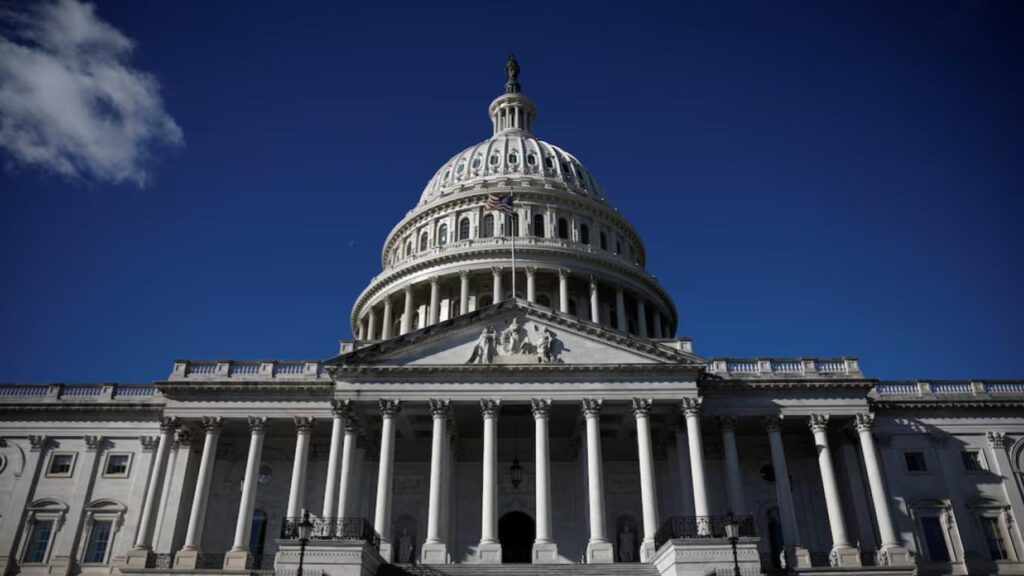The U.S. Senate recently passed a controversial cryptocurrency bill that has sparked intense debate in the financial and tech industries. This move could significantly reshape the landscape for digital currencies, creating a regulatory framework that has the potential to both promote innovation and introduce significant challenges for crypto companies.

U.S. Senate Passes Controversial Cryptocurrency Bill
| Takeaway | Statistic/Fact |
|---|---|
| The bill brings greater regulatory clarity. | 68% of crypto companies believe regulatory certainty is needed to foster growth. |
| It could push innovation overseas. | 34% of crypto businesses are already planning to relocate due to U.S. regulations. |
| Blockchain technology remains unscathed. | The bill focuses primarily on cryptocurrency exchanges and token offerings, leaving blockchain technology intact. |
The U.S. Senate’s passage of the cryptocurrency bill is a significant milestone for the digital asset industry, one that could reshape the future of digital currencies in the U.S. and beyond. While the bill promises to bring clarity and structure to an otherwise murky regulatory environment, it also raises concerns about overregulation, market fragmentation, and potential innovation stifling. Whether these changes will benefit or hinder the crypto industry in the long run remains to be seen, but one thing is certain—the world of digital currency will never be the same again.
What is the Cryptocurrency Bill?
The new cryptocurrency bill passed by the U.S. Senate aims to regulate the fast-growing digital asset industry, primarily focusing on cryptocurrencies such as Bitcoin, Ethereum, and emerging tokens. The bill outlines how these assets will be treated under U.S. law and establishes rules for cryptocurrency exchanges, wallet providers, and blockchain-based projects. The proposed legislation includes provisions on consumer protection, anti-money laundering measures, and taxation guidelines, while also addressing the environmental impact of crypto mining.
One of the bill’s primary goals is to provide clearer guidance for businesses and investors, something that many in the crypto world have been calling for over the last few years. Proponents of the bill argue that this regulatory clarity will help foster innovation and attract more institutional investment in the space.
However, the bill also includes strict regulations and enforcement provisions that have caused concern among some of the industry’s biggest players. The implementation of these rules could force crypto exchanges to comply with heavy reporting requirements, increasing operational costs and reducing the flexibility that many companies currently enjoy.
The Impact on the Future of Cryptocurrency
Increased Regulatory Oversight
A major aspect of the new bill is its focus on increasing regulatory oversight of the crypto industry. One of the most discussed provisions is the creation of a new body that will oversee cryptocurrency trading and enforcement. This regulator would have the authority to investigate potential fraud or market manipulation in the crypto markets, which some believe will help increase consumer trust in digital currencies.
On the other hand, this added oversight could stifle the rapid innovation that the crypto industry is known for. By imposing regulations that align with traditional financial markets, it could slow down the growth of decentralized finance (DeFi) projects, which rely on minimal governmental intervention.
Impact on Crypto Exchanges and Wallets
The bill also introduces new requirements for cryptocurrency exchanges and wallets. These platforms would have to adhere to strict anti-money laundering (AML) and know-your-customer (KYC) laws. While these measures aim to prevent illicit activities such as money laundering and terrorist financing, critics argue that they could add unnecessary complexity and compliance costs, particularly for smaller crypto startups.
For consumers, the bill may provide greater protection, but at the cost of increased fees as exchanges implement these new regulations. On the other hand, larger exchanges with substantial resources, like Coinbase and Binance, are likely to adjust quickly, potentially giving them an upper hand in the market.

Taxation of Digital Assets
Another significant component of the bill is the taxation of digital assets. The new bill mandates that crypto businesses report all transactions over a certain threshold to the IRS, which could help streamline tax reporting for users. This provision is aimed at cracking down on tax evasion, which has been a persistent issue in the crypto space.
Although the move could help the U.S. government recoup billions in unpaid taxes, it may create friction for those in the industry who believe digital assets should be treated differently from traditional investments. Furthermore, the added burden of record-keeping and reporting could discourage some users from participating in the crypto economy.
Environmental Concerns
Crypto mining’s environmental impact is another area addressed by the bill. In recent years, there has been significant backlash against cryptocurrencies, particularly Bitcoin, due to the high energy consumption associated with proof-of-work mining. The new bill proposes that miners disclose their energy usage and transition toward more sustainable practices. This could pressure companies to adopt energy-efficient mining technologies or even consider alternative consensus mechanisms, such as proof-of-stake, which is less resource-intensive.
However, the bill’s environmental measures are likely to face resistance from the crypto community, especially from Bitcoin miners who argue that the energy used is ultimately sustainable when sourced from renewable resources.
How Will the Bill Affect the Future of Digital Currency?
The passage of this cryptocurrency bill is a watershed moment for the future of digital currency in the U.S. While it could pave the way for more widespread adoption of cryptocurrencies and blockchain technologies, it also presents several challenges that could reshape the industry.
Promoting Global Competitiveness
On one hand, the bill could help position the U.S. as a leader in digital asset regulation. With a clear legal framework, U.S.-based companies might have an easier time entering international markets, boosting the global presence of American crypto firms.
However, stricter regulations could push companies to move to more crypto-friendly jurisdictions, such as Switzerland, Singapore, or the Bahamas. The 2023 collapse of FTX highlighted the risks associated with unclear regulations, and many crypto firms may choose to operate in countries that offer greater regulatory flexibility.
Impact on Crypto Investors
For investors, the bill could create more certainty about the future of the digital asset market. With clearer rules, crypto could attract more institutional investors, potentially leading to increased market liquidity. This might also mean more protection for retail investors, particularly with stricter rules around fraud and market manipulation.
On the flip side, tighter regulations could lead to increased market volatility in the short term as businesses adjust to the new rules. There’s also the potential for a higher tax burden for crypto traders and investors, which may disincentivize some people from participating in the market.
Long-Term Implications for Blockchain Technology
While the bill primarily focuses on cryptocurrencies, it also acknowledges the broader potential of blockchain technology. By clarifying the rules surrounding crypto assets, the bill may encourage more businesses to explore blockchain for use cases beyond currency, such as in supply chain management, healthcare, and digital identity.
However, the restrictions on cryptocurrencies could result in a more fragmented blockchain ecosystem, with different rules governing the use of tokens and decentralized applications (dApps) depending on the jurisdiction. In the long run, this could hinder the development of truly global blockchain networks.
FAQs
What does the new cryptocurrency bill do?
The bill provides a legal framework for regulating cryptocurrencies in the U.S., focusing on exchanges, wallets, and transactions. It aims to bring clarity to the industry while ensuring consumer protection and preventing illicit activities.
How will the bill affect crypto investors?
The bill may create more certainty in the market, attracting institutional investors. However, it could lead to higher tax burdens and increased market volatility in the short term.
What environmental measures are in the bill?
The bill requires crypto miners to disclose their energy usage and take steps toward more sustainable practices. It aims to reduce the environmental impact of energy-intensive mining activities.






